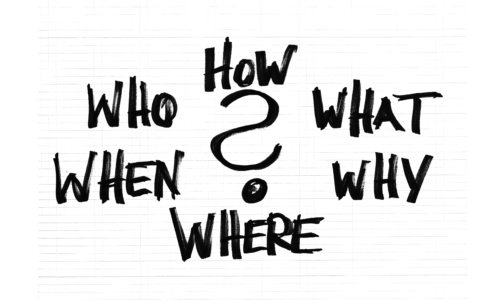1 – Give me an example of a time when you did not meet a client’s expectations. What happened, and how did you attempt to rectify the situation?
When I worked at ABC, as a program manager, due to my technical skills and trust that I built with my client, I started getting more complex and technical work.
For one of the projects, we received some documents for a mobile forensic application, in which the data was encrypted and it was not a known format to our engineers. The format was also not discussed or considered as part of the project scope and statement of work.
We knew we had to invest some engineering time to research and how to best process that. The team’s plate was already full. Luckily this was a small part of the project.
I talked to the client about the complexity and issues and explained why we could not meet the deadline. However, I offered to give them rolling delivery, which was the majority of the data.
This helped them to start the document review and we could deliver the remaining data within the next few days.
Of course, the unknown format was not in the scope, but in the future, I should be more specific about including that as part of assumptions. That will help us to be proactive and present us as more knowledgeable as well as clients who can notify the team they are supporting to help them pre-plan for the possibility.
2- Why do you feel that you would be a good cultural fit at XYZ?
I am looking for a good team culture, supportive management, and growth opportunity in my next role. I gather from my limited online research that XYZ is the right company for my next role goals.

3 – Why Amazon (an example company)
Amazon is the most exciting and dynamic company and focused on customers. Amazon likes to innovate and simplify for their customers. Amazon redefines businesses and thinks long term success. I am very technical and I can see amazon combines technology to best overcome the problem of customers. I am an amazon prime and AWS customer and admire how amazon likes to deep dive and earn trust.
4 – Describe a time when you anticipated potential problems and developed preventive measures.
When I worked at ABC, as a program manager, for one of our clients, we had a large amount of data loading to the server. There were two methods. The first method that was in the practice was to copy the data from the hard drive while loading documents into the system. Which was a more conservative and safer approach.
I gathered statistics and realized that would be an issue if we will have an urgent request. The second method that I implemented was to copy data from the hard drive to the server. We created a small application to check that data was copied successfully and loading documents were not corrupt and can open from the server as quickly as from the hard drive.
Overall, that helped with the speed of loading data, the quality remained the same and decreased the need to work long hours as copying data required minimal human supervision compared to loading data.
Not only it helped with the speed and efficiency, but we could also get this work done with less technical staff and spared our highly technical resources to focus on more data wrangling/processing and loading. We could help our clients with a six times faster turnaround of the work, which gave them additional time to plan and review documents.

5 – Give me an example of a time when you set a goal and were able to meet or achieve it
When I worked at Neuf Consulting as a co-founder, I did some consulting on the side when my product was being built. For a few months, I worked with one client, where my role as a consultant was to help with certain projects for around three months.
As soon as I started working in that environment, I realized that the division did not understand best practices and how powerful the application was. The work that I was hired to do for 3 months, could have been completed within 7-10 days if they had the right system and workflow design.
I explained that to my client and she connected me with the IT director of the division, I worked with the IT department to set up the right system. Within those three months, I not only helped them with the project but made sure that they had an efficient system going forward.
I still continued working with them for almost a year, but they would require my help with certain tasks, only one to two hours a week for upcoming similar projects. They could have converted my position to full time and hired an analyst if the system would not have been this efficient. I essentially helped them to save that money.
6 – An example when you had to push back to HQ or challenged a decision
When I worked at DEF as a program manager, my role was focused on helping with digital transformation and helping the client with process improvement. When I started, during the initial days I reviewed a couple of decisions made, which I would not agree with as those were made based on limited information and short-term resources available.
One of those decisions was to process data in a certain way. There was an application that was specifically designed for ETL processing, another application was focused on forensic. What I learned was that the decision was made by a transition program manager who did not understand technology. Based on a recommendation from the expert, he put that as a long-term standard workflow.
I explained my reasonings for making long-term decisions by deep diving into the functionality of each product, and the client understood my point and that helped us to develop the right and efficient process/workflow from the beginning.
With this decision, I helped to save 50% of additional time with a better quality of data.

7 – Tell me about the toughest decision you’ve had to make in the past six months
It was a very tough decision to leave the company that I co-founded and put numerous efforts into its growth. The company is based on media and marketing and we started seeing success with having a backpack to record podcasts and audio/video by going to live events and helping them to repurpose their content.
Due to COVID, events started canceling. Our last success was at CES 2020, where we helped an augmented reality company to launch their product successfully where 15+ media like WSJ, Forbes, Washington Post, and other big publications picked them up in the news.
After that events started getting canceled due to COVID and I knew we should have shifted to online events. The founder and I differed in our future vision, where he wanted to focus on franchise based community podcast models.
I knew that COVID would change a lot in this world and that would not be a smart idea. So, I decided to exit the company and focus on doing something that I would love to do.
8 – Do you collaborate well?
Yes, I work well with cross-functional team subordinates, clients, and executives. Let me give you an example, when I worked at ABC as a program manager, I had a team in a different timezone working at a client site and at the headquarter.
The program also had the versatility of skillset from developers, data wranglers to paralegals. I managed communication with my team frequently and when possible meeting them in-person or on a video call.
That helped me to win the trust of my team. Same way, I made sure to meet not only with my main client but other case managers I would work with and that helped to win their trust.
Overall, I could make a profitable program and impact for our clients.

9 – Tell me about a decision that you regret.
At one of the companies I worked as a program manager, I was asked to oversee the Data & Solutions Unit additionally, which was underperforming. One of the managers there was forced to sign certain contract documents as a scapegoat. He left his profitable business as his wife was in the last stage of cancer. I was asked to make him work long hours, even though he was promised while being hired that the company would give him flexibility.
I felt a conflict of morale and ethics there. I tried to balance both expectations by negotiating but I wish I would have never agreed to save a broken ship.
10 – Tell me about a time when you missed an obvious solution to a problem
When I worked at OPQ, I was hired as part of a digital transformation initiative. I was trying to understand the culture of being a technical person at a law firm vs. at a consulting company. I was given three pages of documents to execute certain processes manually. For a while, I tried to follow that and it was surely an error-prone process. Initially, I was told that was a safe way and we did not have an issue paying overtime to the team.
I talked to my manager, whose background was non-technical to make him understand how I could make this more efficient and that will help with the liability of the litigation as well. I worked on some automation by creating some quick scripts.
This worked out well, the process that used to take 72 hours total with 18 hours of manual time, now could be completed within 24 hours and manual time was reduced by ⅓.





